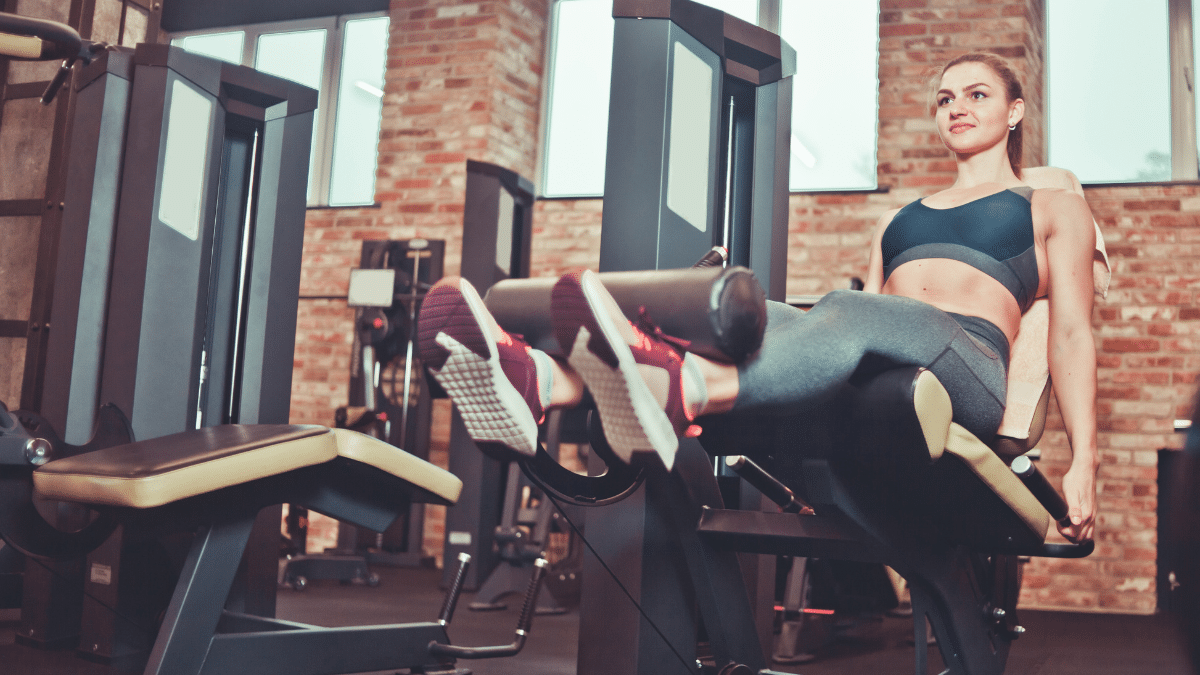I’ll warn you from the outset – this post is going to be a cold dose of reality. There’s a ray of sunshine at the end, but it’ll take a while to get there.
We’re talking about genetics. This isn’t something I like to talk about publicly a lot, but I get asked about it in private often enough that I think I should just put my views out in the open. It’s also something that often doesn’t get discussed openly very often at all by anyone in the industry, because discussions of genetics can come across as depressing and deterministic, whereas optimism and promised results are what make the fitness industry go ’round.
I’ll start with this article by my friend Bret Contreras, because it covers the science at hand pretty thoroughly while still being read-able (a surprisingly difficult feat).
TL;DR, there ARE huge differences in genetic potential between people, both for gaining muscle and for staying lean (and, though Bret’s article didn’t deal with this literature, the same is true for aerobic parameters such as VO2max).
I think all of us “know” these differences exist on some level, but most people are surprised how extreme the differences actually are. I.e. some people start resistance training and don’t even see noob gains. Sure, they gain some strength due to motor learning, but they don’t gain any measurable amount of muscle mass. Ditto for aerobic stuff – some people simply see NO increase in aerobic performance in response to training.
So, with this in mind, it’s time to stop being a Debbie Downer and actually talk about implications.
1) Cut it out with the *&%!@# “Fitspiration” posts.
For a sizeable percentage of the population (depending on the protocol, 20% “nonresponders” isn’t uncommon), that look is simply unattainable. Lots of men can simply never get that muscular, and lots of women will simply never get that skinny without taking drastic measures.


When value is placed on outcomes, not effort, it can be extremely demotivational for people who weren’t dealt a good hand genetically.
2) Coaches should guarantee coaching, NOT results.
This one infuriates me to no end. If I bundled up a program that I promised would add 100 pounds to your powerlifting total or 10 pound of lean mass to your frame, it would sell. Every fitness professional knows this. Look at any fitness magazine or (almost) any mass-marketed program. The marketing and the claims are all very similar – achieve a lofty goal in a modest amount of time.
Problem is, no one can make those promises. Unless they know a way to market their program ONLY to the genetic elite who aren’t yet near their genetic potential, people putting out programs with claims like “gain 2 inches on your arms in 6 weeks” or “blast your bench 50 pound in 8 week” or “get six pack abs in 30 days,” are lying to most (if not all) people, and they know it.
Instead, the guarantee SHOULD be for expert coaching and optimization for the individual. Quite honestly, for some people, that may not mean a ton of tangible results. The people I coach get stronger (I can literally only think of one exception, and I refunded him.), but over the same time span someone may put 30 pounds on their total and someone else may put 200. The common demoninator, though, is that when I’m coaching someone, they get 100%. And they know that. I’d rather people come to me because I’ve demonstrated genuine interest in helping people, and the expertise required to do so – not because I make audacious claims about crazy results that I often couldn’t deliver on.
3) I’m convinced that improvements are always possible
Two points here:
a) Research has to control for as many variables as possible. That means subjects complete the same exercise program to make sure you know exactly what’s producing the results. Good coaches know how to alter programming based on individual needs, and I think that drops the “nonresponder” rate considerably. Those 20% still aren’t going to walk across the Mr. O stage any time soon, but I’m convinced they can improve, at least some, with the proper motivation and individualized coaching. I’ll admit I have no scientific studies to support this contention, but I have yet to come across someone who literally can’t get at least a little bigger, stronger, or leaner.
b) Just because you were dealt a bad hand in one parameter, that doesn’t mean there’s not something you can excel at. Growing up, I wanted nothing more than to be a great basketball player. I was alright, but the NBA just wasn’t in the cards for this 5’9″ white boy. However, I was dealt a very good hand for powerlifting, so that’s where I’ve channeled my efforts and I’ve really come to love it. If you weren’t destined for greatness as an aerobic athlete, you may find your calling with the iron, or vice versa. Don’t be afraid to experiment with different modes of exercise until you really take to something. I love lifting weights, but by no means do I think it’s the only way to be healthy and have fun in the process. Once you find what you’re good at, a funny thing tends to happen: you’ll often fall in love with the things you naturally have an aptitude for. The old cliche applies here: “Don’t knock it ’til you’ve tried it.”
4) Someone’s personal achievements don’t make them an expert
The fact that someone has accomplished the goals you’d like to attain has little bearing at all on their ability to get you there. The best athletes often don’t make the best coaches.
And yes, if you’re keeping track, this is a horribly ironic point for me to be making.
That’s why I don’t make a big deal of my lifting accomplishments. Sure, I’ll use them as a foot in the door (and I think I’d be silly not to), but not as a crutch. I think the emphasis should be on the information someone supplies, and the professionalism they demonstrate.
If someone’s trying to sell their coaching services/programming services/ebook/etc. and their pitch is, in essence, “go with me because I’m big and strong” or “I’m an expert on physique coaching because I am shredded,” then you should instantly be skeptical. If that’s all they’re bringing to the table, then your money would probably be best spent elsewhere.
Now, there’s certainly something to be said for experience. For example, if someone’s a good coach, their personal accomplishments do add to their value, I think. But, first and foremost should be concrete knowledge (the nuts and bolts of good programming – research, periodization models, etc.) and practical application (experience coaching). Experiential knowledge from competing at an elite level is an added bonus, but the first two are much more important.
However, I do think there is something to be said for walking the talk. It shouldn’t be held against someone if they’re not the best, but I’d be wary of any coach who hasn’t trained seriously for some sport or goal.
5) Don’t judge someone for lack of results
We have in our minds that effort —-> results, and that the two scale linearly. I think that’s a quintessential part of the American Dream narrative.
However, like we’ve been talking about this whole time, the two don’t necessarily equate when you’re talking about fitness goals. Someone’s lack of results doesn’t necessarily mean they’re lazy and not putting in as much work as you.
6) Don’t assume you got dealt the bad hand
In one of the classic studies looking at the influence of genetics on sports performance, they looked at the ACTN3 gene, which codes for a binding protein necessary for fast twitch fibers to have their full degree of power output. Essentially, without it, you can’t produce force nearly as quickly as you could otherwise.
As you’d expect, most sprinters have two working copies of this gene. That just makes sense – functioning binding proteins allowing their muscles to produce force as quickly as possible.
However, about 6% of elite sprinters have two nonsense copies of the alleles. They lack this crucial protein for power output…
The point I’m making, in a roundabout way, is that you REALLY have no idea of what your limits are.
If you assume you’ve got bad genetics, then you’re doomed to fail regardless of what your true potential is. If you assume you’ve got genetics on your side, then you may be proven wrong, but you may get farther than you originally thought possible.
The Most Important Takeaway
Going back to the idea of separating effort and results, don’t let anything keep you from exercising. Regardless of your genetic makeup, exercise is good for you.
Maybe you won’t get really huge – but lifting weights is good for coordination and bone mineral density anyways.
Maybe your aerobic endurance won’t improve – but aerobic exercise is still good for heart health
Maybe you won’t get super lean – but maintaining a healthy weight drops your risk of almost every chronic disease
So, ultimately, screw your genetics.
Don’t fall in love with some vague notion of an ideal body or a certain level of strength you’d like to attain.
Fall in love with the process. Fall in love with simply being active and exercising in some fashion.
At the end of the day, your health matters more than a six pack, a marathon time, or a powerlifting total. And that’s something you can ABSOLUTELY improve by exercising, regardless of what your genetics say about the other stuff.




